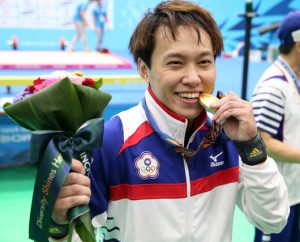It wasn’t all that long ago that Lin Tzu-Chi was absolutely dominating the world of women’s Olympic weightlifting, particularly in the under 63 kg class.

Really exploding on the international scene in the lead up to the 2016 Rio de Janeiro Olympic Games, this Chinese Olympic athlete had been dominating “behind-the-scenes” for years and years. However, just days before she was poised to take center stage for the Chinese Olympic team in 2016 she was suspended from competition for popping positive for anabolic steroids.
This was the second time that Tzu-Chi had been accused of using anabolic steroids to gain a competitive advantage. In 2010 she had tested positive for steroids twice out of competition, and received a two-year suspension from international competition as well. This held her out of the 2012 London summer Olympic Games, and most in the professional weightlifting community thought that this two-year suspension was going to be more than enough to stop her from continuing to use these kinds of substances. It ends up that this wasn’t the case.
According to WADA officials that have been “back testing” samples collected by Olympic athletes over the past 3+ Olympics, utilizing next generation anti-doping technology that simply didn’t exist previously to bust athletes for doping after the fact – a controversial stance, but something that the WADA has continued to move forward with – Tzu-Chi was doping in the lead up to and after the Rio de Janeiro Olympics in 2016.
These new tests are a lot more advanced than they used to be in the past, and the WADA feels that they conclusively prove that the athlete in question had continued to practice a behavioral pattern of skirting the laws and rules governing clean competition in the world of weightlifting.
The Chinese were made aware of the progress made by the anti-doping agency and the case being built against Tzu-Chi, they decided to move swiftly by handing down a second two-year suspension. However, the WADA felt that the Chinese were being far too lenient on Tzu-Chi and instead decided to slap and eight year suspension down – going above and beyond what the Chinese felt was fair for one of the most important national athletes they have in their weightlifting stable.
Unsurprisingly, both Tzu-Chi and the Chinese Olympic Committee are appealing the decision of the WADA. In a somewhat surprising move, the WADA is also appealing the ruling made by the Chinese Olympic Committee, and all parties are looking to move forward with a more definitive decision by the time the end of 2018 rolls around.
As far as the future prospects of Tzu-Chi in the world of competitive weightlifting are concerned, it doesn’t look like she is going to have much of a career anymore. This is absolutely jaw-dropping, considering the fact that Tzu-Chi had dominated competition left and right – including when she was competing completely clean, according to her drug tests at the time.
In 2014 she sat a 63 kg world weight class record with a clean and jerk left of 145 kg as well as another record for a total combined lift of 261 kg at the same competition. Her record has since been beaten – by just a single kilogram more – but it took almost 3 years to top that record (with plenty of athletes trying to unseat her).
The eight year suspension guarantees that Tzu-Chi is set to miss both the 2020 Tokyo Olympic Games in the 2024 Paris Olympic Games. She might turn to the pro circuit to continue taking advantage of her training and natural talents, but even that’s going to be pretty hard with this doping albatross hanging over her head.


